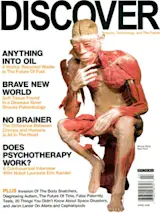"The strangest thing about my son is that he started out talking really well, and then a couple of months ago, he just stopped."
As his mother was telling me that, the 17-month-old abandoned the toy car he had been playing with, looked at me briefly, and then toddled across my office to his mother's chair. He reached for her hand and pulled on it, insistently. She got out of her chair, and he led her over to where he had been playing. The boy took his mother's hand and placed it on top of the toy car. "Oh, the wheel fell off," she said to him, as she replaced the small plastic wheel on the axle. "Here, Mommy fixed it for you."
The boy resumed his play, rolling the car back and forth repeatedly. I watched him for a few seconds, then turned back to the mother, who now ...














